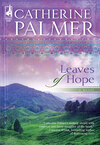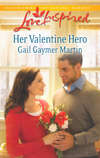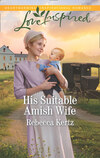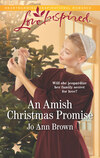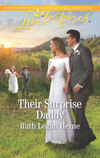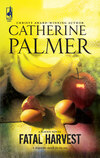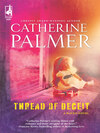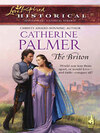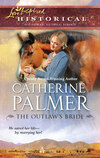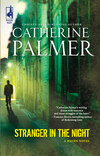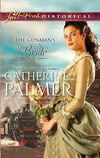Loe raamatut: «Leaves Of Hope»
Critical Praise for Catherine Palmer
“Catherine Palmer is the diva of heartbreak fiction!”
—Romantic Times BOOKclub
“Palmer has created some interesting characters…Brock’s faith journey is realistic and will touch readers.”
—Romantic Times BOOKclub on Love’s Haven
“Believable characters tug at heartstrings, and God’s power to change hearts and lives is beautifully depicted.”
—Romantic Times BOOKclub on That Christmas Feeling
“Fans of…the award-winning Palmer will enjoy this light and tightly written romance.”
—Library Journal on Victorian Rose
“A powerful mix of lightness and intensity, this novel demonstrates a beautiful message of Christian love. Expertly drawn characters and Ms. Palmer’s gifted insight into the human heart make this one of the best inspirational and historical romances of the year.”
—Romantic Times BOOKclub on Prairie Fire
“Palmer certainly doesn’t preach, yet spiritual truths come part and parcel with the story. Balancing her characters’ flood of negative emotions with their spiritual reawakening is difficult, but Palmer succeeds admirably. Fans of Dee Henderson’s fast-paced Christian thrillers will find Palmer’s novel just as riveting.”
—Publishers Weekly on A Dangerous Silence
Leaves of Hope
Catherine Palmer

MILLS & BOON
Before you start reading, why not sign up?
Thank you for downloading this Mills & Boon book. If you want to hear about exclusive discounts, special offers and competitions, sign up to our email newsletter today!
Or simply visit
Mills & Boon emails are completely free to receive and you can unsubscribe at any time via the link in any email we send you.
For Tim Palmer, whose humble service to
“the least of these” bears daily witness that any
man who is in Christ is a new creation.
Acknowledgments
A book’s roots run deep. This story’s legacy goes all the way back to the tea and coffee fields of my childhood in Kenya. To Carol Lloyd, whose friendship saved my mother and brought intense joy to my young life. To her husband, Thomas Lloyd, manager of Tinderet tea estate, a man whose life demonstrates that hard, honest work can break down every barrier. To Richard Wilson, who brought me more happiness than he will ever know. And to his family, whose life in Kenya helped spark the very essence of my imagination.
While the oldest and deepest roots hold a plant in place, the newer ones provide the nourishment that gives it life. For this book’s existence, I thank my husband, Tim, who patiently lived the story of Jan and Beth with me and who edited every word of the manuscript before it left my hands. I am so grateful to my Steeple Hill editor, Joan Marlow Golan, who listened to my heart and gave me freedom to stretch my wings in writing the story of two generations bound by a message in a teapot. My gratitude also to Karen Solem, my agent, a woman who always keeps me pressing forward in the Christian race. May God richly bless all of you!
DISCUSSION QUESTIONS
1. Do you think Beth should have opened the cardboard box with her name on it? Why or why not? Is it ever all right to disobey a parent’s wishes?
2. Why do you think Jan kept the tea set Thomas Wood had given her? Why do you think she put the note inside it? Do you believe she told Beth the truth about her reasons for holding on to the gift from Thomas?
3. What do you think of Jan’s relationship with John Lowell? Was she right to have married him? Do you believe she really loved him? Did he really love her? What kind of man do you think he was—and why did he behave as he did? How does Beth feel toward John before and after the discovery of the teapot?
4. Why is Jan so upset to discover that her hair color has been discontinued? What does the dye symbolize to her? How do Jan’s feelings about her age change through the story? Why?
5. Jan has always painted roses. Why was she so determined to put her daughter into a pink bedroom? Why are the sayings on the walls and paintings of the roses so important to Jan? Why does she suddenly start painting children?
6. What do you think of Beth’s attitude and behavior toward her mother? Should she have confronted Jan about her discovery of the note? When she was dealing with the news about her birth father, did her life give evidence of her faith in Christ? She regularly talks about running a race. What does she mean by that?
7. How are Jan and Beth different? Are they alike in any way? How have they affected and changed each other through the years?
8. What part does Jim Blevins play in Jan’s life? Do you think she treats him well? How does Jim play a role in Beth’s life? What do you suppose will happen to Jim?
9. Miles Wilson describes himself as “boorish.” What sort of man is he when Beth meets him? Why does she have such a powerful impact upon him? Why is Malcolm Wilson important in his brother’s life? What kind of man is Miles at the end of the book?
10. Do you believe Jan and Miles were right when they decided their new faith in Christ should bear physical evidence of change? Did they really need to go all the way to India to prove it? What did Jan and Miles mean when they discussed that Beth seemed to “glow”? Paul said that any person who gives his or her life to Christ becomes a new creation. Do you believe that new life in Christ always brings about a dramatic change? How did Beth, Jan, Miles and Thomas live out their faith?
To ask questions or for further information,
please visit the author’s Web site:
www.catherinepalmer.com
Contents
Chapter One
Chapter Two
Chapter Three
Chapter Four
Chapter Five
Chapter Six
Chapter Seven
Chapter Eight
Chapter Nine
Chapter Ten
Chapter Eleven
Chapter Twelve
Chapter Thirteen
Chapter Fourteen
Chapter Fifteen
Chapter Sixteen
Chapter Seventeen
Chapter Eighteen
Chapter Nineteen
Chapter One
Lake Palestine, Texas
Being home again felt better than she had expected. With her mother living in a new house by the lake and her father gone, Beth Lowell had feared things might seem strange. But there in the pink armchair sat her mom reading a magazine. By the door stood the familiar brass coatrack. On the table sat a bouquet of fresh roses, as always. As much as she wished her mother would wake up and do something exciting with her life, Beth couldn’t deny the pleasure in the familiar aroma of Jan Lowell’s warm cherry cobbler. The taste of her famous chicken salad. The tang of fresh, homemade lemonade.
“Do you realize how many times your phone has tweedled, sweetie?” Jan lifted her head from the magazine. “I bet you’ve had fifteen calls since you got here this afternoon.”
“Is that bothering you?” Beth asked as she set the phone beside her on the old beige sofa.
“It does make conversation difficult. I haven’t seen you in almost a year, but we can hardly finish a sentence. Before this last call, you were telling me about your boss.”
“I don’t want to talk about Joe anymore.” Beth crossed her legs and rubbed her toes, determined to avoid the subject of the man she had been dating for two months. “He’s a good guy, but he doesn’t understand my job. They bought us out because they knew they needed us, but Joe hasn’t found time to learn what we do.”
Her mom’s eyebrows lifted. “I have no idea what you’re talking about, Beth. Who’s they, and who’s us? And what do you really do?”
“My division of the company used to be an independent consulting firm. We assisted various corporations with international transitions. Last year, Global Relocation Services acquired the firm and moved us to New York. Now we help their clients.”
As Jan shook her head in confusion, Beth wondered why her mother suddenly looked so old. Why did she wear a faded pink chenille bathrobe and that ancient flannel nightgown? And why did she still have those awful fake-fur slippers she’d gotten for Christmas a jillion years ago?
“What is an international transition, honey?” Jan asked. “I’m sorry, but I can’t picture what that means.”
She adjusted herself in the chair, Beth noticed, as though her back were hurting. Could she have osteoporosis at age forty-five?
“You’re the English teacher, Mom,” Beth reminded her. “International refers to the world. Transition means moving and changing. I help people move around the world. Industry executives. Diplomats. Oil field managers.”
“You pack boxes for them?” Jan glanced at the stacks of cartons still lining the edge of her living room. Though she had been living at the lake for more than a month now, she had yet to sort through all her possessions. The guest room where Beth would sleep was a maze of lamps, side tables, artificial flower arrangements and boxes.
“The moving company takes care of people’s furniture and possessions—the packing and unpacking,” Beth explained. “My division handles the rest.”
“What else is there?”
“Everything. Families are uprooting their lives and settling into a new community. That’s where I come in.”
Jan flipped a page in her magazine without looking down at it. “Like helping them find a good school?”
“That and a hundred other things. For example, I just spent three months working with the family of a plastics company executive moving from Chicago to Colombia.”
“Colombia? South America? Where they have the drugs and cartels and kidnappings? You didn’t go down there, did you?”
“Sure, I went. This family—Dad, Mom and three children—were moving to the city of Cali. I interviewed each person to learn what they needed in order to be happy. Then I went to work. I helped them find a great house—five bedrooms, swimming pool, wonderful yard. There’s a wall with Spanish lace on top—that’s broken glass and barbed wire. And I set them up with a reputable security company, so they’ve got armed guards and watchdogs 24/7.”
“How horrible!”
“No, it’s great. It’s safe, too—that’s the main thing. Their car has an armed chauffeur, and the house features a state-of-the-art alarm system. I found the kids an international school where classes are taught in English. Fully accredited—kindergarten through twelfth grade. Ninety-five percent of the students go on to university, most of them in the United States.”
“Well, that’s impressive. But what a scary place to live. Armed guards?”
Beth shrugged. “Families like that are prey for kidnappers. They’re wealthy, they’re American and they work for Fortune 500 companies. Unfortunately, Colombia has a number of guerrilla organizations. Ransom money helps pay for their activities. So does drug money.”
“Beth, what kind of parents would move their children to such a place? It’s so risky, so irresponsible! And how could you go there without telling me? If I’d known, I would have been frantic!”
“That’s why I didn’t tell you. I loved every minute of it, and I was perfectly safe. Cali is an enchanting city—flowers, a perfect climate, wonderful people.”
“Except for the drug lords and guerrillas,” Jan said drily.
“What country doesn’t have a criminal element?” Beth countered, trying to squelch her resentment that her mother was putting her on the defensive about her work…her life. “The family was thrilled with my work. Before the move, our transition team briefed them on what to expect—not just the change in lifestyle but the emotional impact of the move. I heard from the mother the other day. They’re enjoying their new life, the kids are excited about school and everyone is taking Spanish classes.”
Jan leaned back and set her magazine on the table. “I don’t know how you became this person, Beth,” she said softly. “You grew up in Tyler.”
“Everyone grows up somewhere. I’ve always wanted to travel, Mom. You make it sound like a bad thing.”
“It’s dangerous.”
“Not really. And the adventure is more than worth the risk. I’m going to Botswana in a couple of weeks!”
“Africa? Oh, my.”
“Are you really worried, Mom? Or is it that you don’t like change, so you can’t believe someone else would?”
“Probably a little of both. Frankly, even hearing about it wears me out. I wouldn’t know where to begin doing what you do. And those poor wives. If my husband had moved me around like that…”
She paused, her eyes drifting to the corner of the living room as if she were looking at something far away. Then she shook herself and focused on her daughter again. “I’d be scared to death, and I would probably hate it. I’m glad you’re happy, though, honey. That’s all I want for you.”
Beth rearranged herself on the couch. “I wish you’d come to New York for a visit, Mom. I’d show you my apartment, my job…my life. We could go to some of my favorite restaurants. And see a play. When was the last time you saw a Broadway production?”
“I’ve never been to New York.” Jan admitted.
“Mom, that’s awful! You’ve never been to a Broadway show? You were an English major. You directed plays at John Tyler High School for the past twenty years. Didn’t you have a chance to go when you were young—on a band trip or during college?”
“New York City is a long way from Tyler. Besides, I’ve never wanted to leave Texas. I’m sorry to disappoint you, honey, but I like my quiet life out here by the lake.”
Beth gazed out the window at the mown green lawn, the strip of gray road, the yard across the street and the lake beyond. The sunset reflecting on the water flashed periwinkle and pink sparkles as snatches of foamy white scattered across the surface. Birds wheeled and screeched overhead—seagulls and pelicans—dipping to pluck fish from the water.
Jan followed her daughter’s gaze. “I don’t know how those seagulls dare to wander so far from the ocean.”
“Maybe they’re the adventurous ones.”
“Or lost.” Her mother returned her focus to Beth. “You can come to the lake any time you want. I’ll always be happy for a visit.”
“Is that the only way I can have you in my life? You and Dad helped me become who I am. I want you to know me now, Mom…as an adult.”
“I do know you, sweetie,” Jan said. “Better than you think. I’m just not one to go places—I never have been. Now I’m forty-five and a widow and an empty-nester, and my life isn’t going to change drastically. It’s like the quote I love so much, remember? ‘That that is, is. That that is not, is not. Is that not it? It is.’ I painted it on the wall of my screened porch. I used brown to contrast with the white clapboard. It’s the theme for my new life here at the lake.”
Beth reflected a moment. “Mom, that’s the theme you’ve always had. Que sera sera. What will be, will be. Or Shakespeare’s ‘I scorn to change my state with kings.’”
“Sonnet Twenty-Nine,” her mother clarified. “‘For thy sweet love remembered such wealth brings That then I scorn to change my state with kings.’ It’s better when you say the whole thing. You know I taught English for twenty years, Beth. These quotes crop up in conversation now and then.”
“But they’re always the same, Mom, like memos to yourself—reminding you to shrug off any possibility of change.” Beth’s eyes widened and she sat up. “I just thought of another one. ‘God, grant me the serenity to accept the things I cannot change, the courage to change the things I can—’”
“‘And the wisdom to know the difference,’” they finished together.
“What’s wrong with that?” Jan asked. “Your daddy grew up in a houseful of reformed alcoholics, and they lived by that saying.”
“They weren’t reformed alcoholics when Dad was growing up.” Beth tucked a strand of brown hair behind her ear. “Dad was the only stable one of the whole bunch. I’m surprised they didn’t all fall to pieces after he died.”
“I’m surprised none of us did.” Jan swallowed, and looked down.
Beth felt again the huge hole her father’s death had left in his family’s world. Two years had gone by, but it seemed like yesterday. And forever.
“The point I’m making, Mom,” she continued gently, “is that you took a big step—retiring from your teaching job, selling the house you and Dad lived in your whole married life, leaving good ol’ Tyler, Texas, and moving to a new house fifteen miles away. But then you painted the same old motto on your porch.”
Jan’s blue eyes narrowed. “Young lady, ‘what is, is.’ I will accept it and try to be happy.”
“So, you’re just going to roll up like a little pill bug and bury your head?”
“Of course not! I have plans. Things I’m doing. But I won’t spend my life longing for what was. Or wishing for what might have been. It’s called acceptance.”
“It’s called boring.”
“Well, that’s your opinion.”
Beth’s heart grew softer as she heard the pain in her mother’s voice. “When I heard you were moving, I was thrilled. I thought, now. Now, she’ll do something with herself. You taught school to earn a living, but inside, you had art, poetry, imagination bubbling up and seeping out. I thought I might come to the lake and find a bohemian mom with candles burning and red velvet couches and books of poetry lying around. But you have another tidy little house with the same curtains, beige furniture and throw rugs, just like in Tyler. You’re still making chicken salad sandwiches and lemonade. And you’ve painted a saying that means ‘Accept life and do nothing different.’”
“First of all, I loved teaching,” Jan told her daughter. “It was never just a job. Second…well, I am doing things differently.
My art, for example.”
“Watercolors?”
“Pastel chalks, as a matter of fact.” Jan lifted her chin as though she had just reported recently climbing Mount Everest. “So you see? It’s not the same. I took a class years ago. A woman taught us how to create portraits of Native Americans.”
“You’re painting Native Americans?”
“Of course not. What would I know about Native Americans? But one day I got out the old pastels, and I’ve been experimenting. I’m trying new things.”
“It doesn’t count if you’re still doing roses, Mom.”
“I’m painting people.”
“People!” Beth sat up straight. “Let me see!”
“Absolutely not. I’m still learning. Besides, all my people still look like Native Americans. Pastels aren’t as easy as watercolors, where you can blend until you get the exact tone before you put brush to paper. With chalk, it’s all about how you use your hands. Look at my fingertips. The prints are worn off from rubbing the paper. I could commit a crime, and they’d never catch me.”
Beth laughed. “You’ve never done anything wrong, Mom.” Jan gave a demure smile. “So, now you know what’s new with me…tell me more about you. Are you seeing anyone?”
Beth groaned. “You are way too predictable.”
“Well?”
“Are you?”
“Me?”
“You’re allowed to date, you know. Bob, Bill and I talked over the idea, and we’re agreed. We think you should start going out. Maybe even marry again.”
“So my children are discussing me behind my back,” Jan said. “Well, save yourselves the trouble. I’m not interested in dating—or remarrying—ever. It hasn’t been long since your father died, and that was very traumatic. Besides, look at me. I’ve spread out in all the wrong places. I’m sagging and drooping and wrinkled up like one of those Chinese dogs. But let’s talk about you. Have you met any nice men in New York?”
“Look, Mom, I know losing Dad was devastating, but he died two years ago, and was sick for three years before that, so it’s not as if you haven’t had time to work through your feelings. And why do you make yourself sound like a bag lady? You’re pretty, Mom.”
“I know what’s under this bathrobe. Believe me, there’s no chance I’m ever going to marry again, so you can put that notion right out of your head.”
“If marrying is such a bad idea, why are you always pushing me to connect with some altar-bound guy?”
“Well, for pity’s sake, Beth, you’re beautiful and smart, and you have your whole life in front of you. Don’t you want to build a family? Buy a home instead of living in that cramped apartment? And what about children? What about love?”
“You tell me.”
“There’s nothing more wonderful than a happy marriage. It’s what I want for all my children.”
“Then why won’t you marry again?”
“Beth, stop! I’ve been there, done that, okay? Look at who’s available for me to choose from, anyway? The single men my age will have failed marriages or be old, lonely widowers with too many needs or have resentful children. Even if I did find some never-before-married man my age, what sort of person could he be?”
Beth rolled her eyes. “Everyone has baggage, Mom. None of the men I meet are pristine young innocents.”
“Have you been going to church?”
“Of course. I’ve met some decent men—but everyone has baggage.”
“You don’t have any baggage. You grew up in a two-parent home in Tyler, Texas, with a nice church and an active social life. You got a good education, and now you have an interesting job.”
“I’m practically perfect in every way, like Mary Poppins?” Beth grinned. “Yeah, you and Dad did a fine job raising me, Mom. I’m just not in a hurry to marry. I have other things to do before I settle down. And I want you to come to New York and visit me.”
Jan reached over and fiddled with the magazine. “I might,” she said finally. “I have time now, and your dad left me in good financial shape. So I suppose I could.”
“How about this summer?”
“Oh, no, I’m still settling in here in Lake Palestine. I have a lot to do.”
“I’ll help you unpack. I’m here for three days. I bet we can take care of it all before I leave.”
“No.” Her voice growing serious, Jan rose from her chair. “Don’t touch anything, Beth. Leave those boxes in the guest room exactly as they are. I’m the only one who knows where things should go. Seriously. Hands off.”
Beth studied her mom, who looked shorter and tinier now than ever. Despite her auburn hair and pert blue eyes, Jan showed her years. Did she want to shrivel up and fade away as her husband had done? Disease had robbed him of all movement, and then his breath and finally his life.
Before the tears could start, Beth stood. “Good night, Mom,” she whispered as she folded her mother in her arms. “I love you.”
In the guest room, Beth rooted through her suitcase. She had grown so accustomed to living out of it that she hardly had to search for things. Underwear on the left. Toiletries on the right. Casual clothes at the bottom. Business attire near the top. She bought knits that needed no ironing, and lingerie she could wash at night and wear by morning. Her mother had no idea of any of this.
As she tugged her T-shirt over her head, Beth focused on a plaque Jan had painted long ago. It had always hung in the spare room at their house in Tyler. “Welcome, Friend,” she had painted in delicate, curling script—black ink on a pale purple background. And then beneath it she printed words from a William Cowper poem:
Now stir the fire, and close the shutters fast,
Let fall the curtains, wheel the sofa round,
And, while the bubbling and loud-hissing urn
Throws up a steamy column, and the cups,
That cheer but not inebriate, wait on each,
So let us welcome peaceful evening in.
Beth wondered if this was truly what her mother desired most. Shutters fastened, curtains drawn, cups of hot tea and a quiet life in which nothing ever changed.
She mused on their evening together. While talking of New York and her job, Beth had felt her mother’s scrutiny. It was as if Jan were trying to read her offspring, define her, decipher this odd creature in her living room. If only she could label her daughter in the same way she tagged other things, the child would make sense at last.
In fact, now that Beth thought of it, her mother had branded her. Near the window in her cotton-candy pink bedroom, Jan had hung this verse:
What are little girls made of?
Sugar and spice, and everything nice,
That’s what little girls are made of.
Sugar and spice? Hardly. Now, as she opened the closet door to toss in her travel bag, Beth wondered where the framed sayings and poems had ended up. Were they in one of the boxes stacked around the guest room? Or had her mother thrown them into the trash on moving day?
Of course, the inscription painted in bright pink letters over the bed in Beth’s room would have been left behind. She recalled gazing at it for hours, wondering if it were true. “Queen rose of the rosebud garden of girls,” read the words by Alfred, Lord Tennyson.
Queen rose. Beth had pondered the elaborate calligraphy as she lay in her pink bedroom with its reproduction white French Provincial furniture, its flowered spread and curtains and its pale pink carpet. She had imagined the Tyler Municipal Rose Garden, a fourteen-acre park with five hundred varieties of roses among its forty thousand bushes. She had pictured a girl’s face inside each rose…her friends, models in the Sears catalog, actresses on television. In the center of the park grew one large bush with a single deep red blossom…the queen rose of the rosebud garden of girls. And whose face did Beth see when she peered among the petals of that marvelous flower?
Her mother’s.
Janice Amelia Calhoun Lowell.
In her heart, Beth knew she herself was no rose. She inhabited the pink room, but it had never belonged to her. She didn’t match the soft hues, fragile blossoms and sweet poetry. An olive-skinned tomboy, she ran around the neighborhood with scuffed sneakers, scabby knees, tattered shorts and skinny arms. Twigs of hair stuck out in every direction from her long brown braids. She climbed trees and built forts. She was a pirate king, a mermaid ruling an undersea city, a soldier slogging through the jungle, a spy on a secret mission. She hated pink.
“I don’t know how you became this person,” her mother had mused aloud. But had Beth changed so much?
As she set out her toiletries and Bible, she tucked a length of hair behind her ear. Scripture taught that change was not only possible but essential. In his second letter to the Corinthians, Saint Paul had written that a Christian must become a new person in Christ. A different creature.
This was troublesome for a girl who had given her life to Jesus at a church revival when she was eight years old. How much sin could a child that age have committed? How much change could one expect? Yet, Beth sensed that because of Christ, she was changing all the time—renewing, working out her salvation, striving toward righteousness.
The more she dug into Scripture, the odder and less normal she became. These days, she felt transparent and single-minded and deep and narrow and open and loving and intolerant and all kinds of contradictory things. In the same way that she had failed to blend into her pink bedroom as a child, she now failed to identify with most of her coworkers and friends. She was metamorphosing into an alien, someone not even her own mother recognized.
With a sigh, Beth pressed a dab of toothpaste onto her toothbrush, picked up her cleanser and comb, and cast a last look at the Bible on the bed. Tired and a little cranky from trying to communicate with her mom, she considered skipping her daily Scripture reading. But she knew she wouldn’t. The ritual had come to mean too much.
As she brushed her teeth in the guest bathroom, Beth could hear her mother in the kitchen—putting away dishes, opening and closing the refrigerator, tucking place mats back in their drawer. Touching everything and setting little bits of herself here and there, shaping and molding her small, well-ordered world.
Did her mother feel she had failed? Skinny, dark-haired Beth, Jan’s only daughter, hadn’t grown up to become the queen rose. She certainly wasn’t sugar and spice and everything nice. Beth had traveled away from her family and had kept on going, until she was someone else entirely.
As she headed back into the bedroom, Beth recalled her mother’s insistence that she was doing different things now—using pastels to create portraits. As though that were a radical change from her watercolor bouquets.
Perhaps such an alteration was more fundamental than Beth supposed. Curious about her mother’s art, she peeked behind the coats and sweaters in the closet. What sort of people could Jan Lowell be sketching? Rose-cheeked children? Ladies in pink flowered gowns? The high school students she had taught so many years? All of them looking vaguely like Native Americans…
Smiling at the thought, Beth knelt and pushed aside a cardboard box in search of an artist’s pad or a hidden portfolio. The new sketches were probably in her mom’s bedroom, stashed away until she deemed them ready for presentation. In the past, Jan always held a little ceremony, complete with chocolate cake and punch at which she debuted her latest rose paintings. Her children chose their favorite, and their mother framed it—hanging the selected piece in a special place beside the front door.
As Beth began to uncurl from the floor, she spotted a black-marker notation on the cardboard box she had pushed aside in the closet. “For Beth,” it read. The carton wasn’t large, and she wondered what could be inside it. Old school papers or childhood treasures? Perhaps a collection of mementos from Beth’s grandparents or sweet old Nanny, the children’s favorite babysitter?
Beth ran her hand over the tape that sealed the carton. Odd that this box had been so well packed while the others in the room were simply folded in on themselves. She shouldn’t open it. Her mother had told her not to touch anything in the room. Hands off. But this carton was clearly meant to be Beth’s. “For Beth,” it announced in bold black ink.
